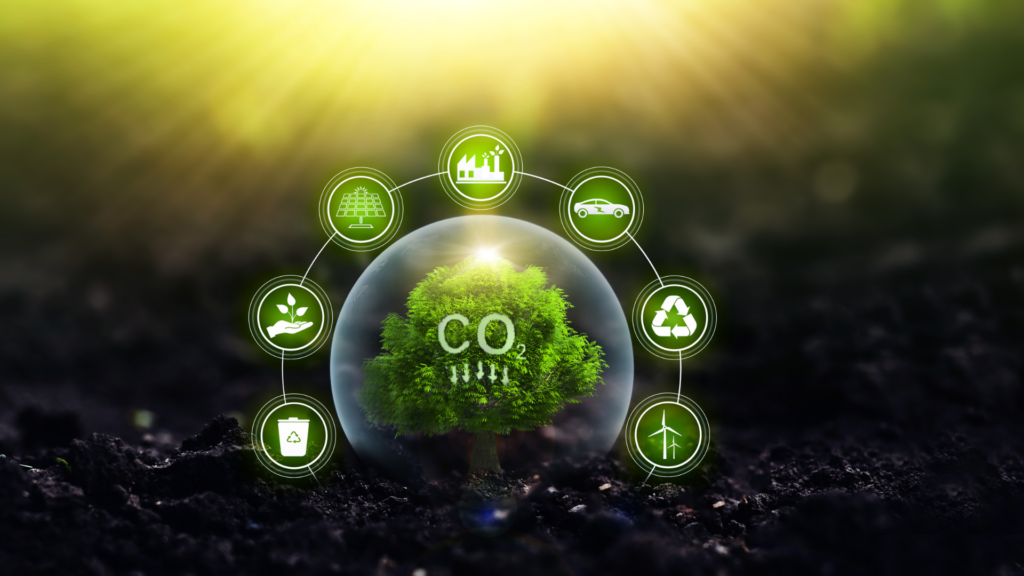
In an era where environmental challenges are more pressing than ever, transitioning to a green economy is not just a choice but a necessity. A green economy, characterized by low carbon emissions and resource efficiency, is the cornerstone of sustainable prosperity. At the International Council on Environmental Economics and Development (ICEED), we are committed to leading this transition, providing policy research dedicated to advocating for and implementing sustainable practices. We believe this is the only viable path to a prosperous future for all.
Low Carbon: Reducing Our Footprint
The foundation of a green economy (we call it “nature capital”) lies in minimizing carbon emissions. This means promoting renewable energy sources, enhancing energy efficiency, and supporting cleaner production methods. ICEED collaborates with communities, governments, and businesses in Africa to implement strategies that significantly reduce carbon footprints. Our initiatives include educational campaigns, community solar projects, and policy advocacy aimed at encouraging a shift toward sustainable energy sources.
“Transitioning to a sustainable green economy is not simply good for the environment and energy security. It is essential for the well-being of our planet to become independent from the previously dominant economic structures and for future generations to establish practices for their everyday living. It is about shifting to a sustainable future from the traditional economic and industrially driven ecocide in order to save our children’s future. This will help create opportunities to sustainably share the resources of our planet, which has come under greater difficulties because of supply source pressure related to the conflict in Ukraine.” – Kazunao Sato, Senior Executive Director – ICEED
Resource Efficiency: Doing More with Less
It will take longer than the set goal, 2030, to accomplish a green energy transition. The definition of a green economy means shifting to a new system from the traditional, centralized economic models. Changing practices requires our behaviors and perceptions to change, and that will take more time to complete. Resource efficiency is one of the key elements that allows old trends to shift and extra time for us to discover alternative ways to define what is appropriate for our society. This can be achieved by maximizing the use of available resources while minimizing waste, since waste and its production consumes extremely high amounts of energy and releases greenhouse gases (GHGs). Ironically, the world now requires a new sustainable and efficient economic system because of additional difficulties, including the economic and supply source pressure due to the Ukraine conflict. In a world with finite resources, efficient energy use is imperative. ICEED’s work within the United Nations Program for the Environment (UNEP) looks to advocate international policy reform by utilizing resource-efficient practices in communities and industries. Our projects aim to demonstrate that efficient resource use leads to economic savings and environmental benefits.
The Path to Sustainable Prosperity
A green economy is not just about protecting the environment. It is about building a sustainable and prosperous future for all. It is about creating new values and opportunities that allow low-income and climate-vulnerable countries to gain economic independence and raise awareness about how a green economy can contribute to building climate resiliency in response to numerous cascading issues. This approach has a positive side effect that creates a new message: the emergence of a new power balance that counters the traditional, energy-driven nations.
As Kazunao Sato, our Senior Executive Director, aptly puts it, “Our commitment to a green economy is a commitment to a more sustainable, affordable and safer future.”
Join us in our journey toward a green economy. Together, we can make a difference.
